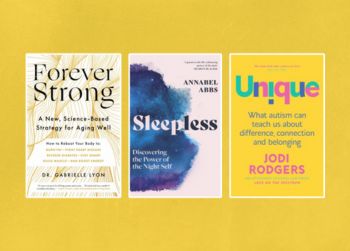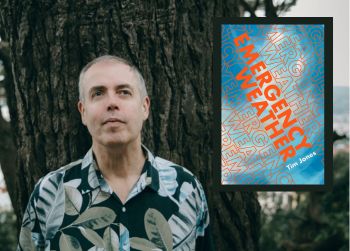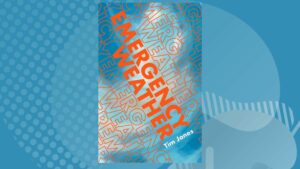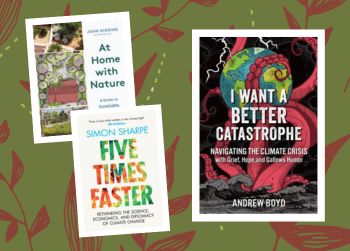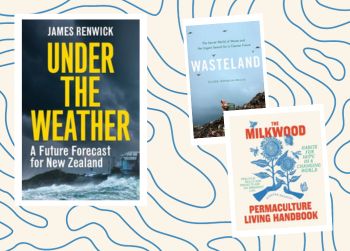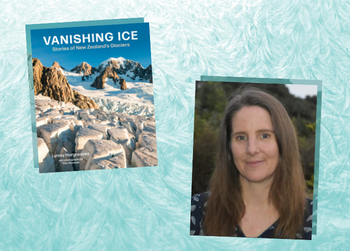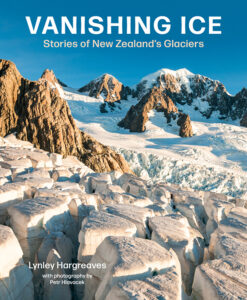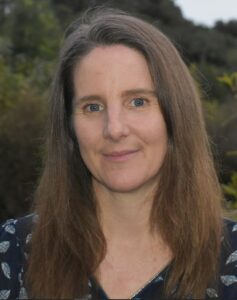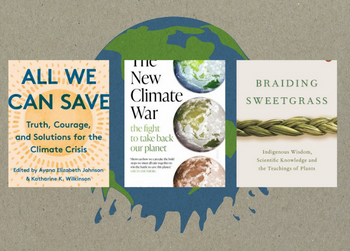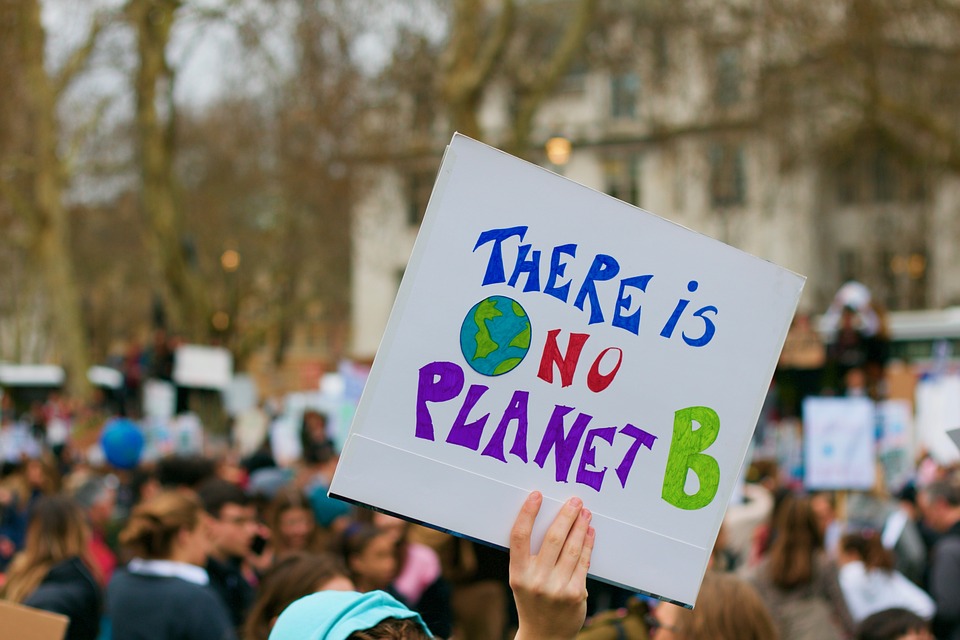Whether you’re wanting to build your body strength, understand autism, build resilience in the face of a changing climate or get a good night’s sleep, we’ve got plenty of new health books in the collection to walk you through your health journey. Try some of these we’ve selected below:
 Forever strong : a new, science-based strategy for aging well / Lyon, Gabrielle
Forever strong : a new, science-based strategy for aging well / Lyon, Gabrielle
“After years of watching patients cycle through her practice, Dr Gabrielle Lyon noticed a pattern. While her patients struggled with a wide range of conditions, they all suffered from the same core problem: they had too little muscle rather than too much fat. When we think about muscle, we tend to think about strength or aesthetics, but in reality, muscle accounts for so much more than that. As the body’s largest endocrine organ, muscle actually determines everything about the trajectory of health and aging. Now, Dr Lyon offers an easy-to-follow food, fitness, and self-care program anchored in evidence and pioneering research that teaches you how to optimize muscle-no matter your age or health background.” (Adapted from Catalogue)
 The neuroscience of yoga and meditation / Fair, Brittany
The neuroscience of yoga and meditation / Fair, Brittany
“An accessible introduction to how yoga and meditation affect the brain. Each chapter will guide the reader through the latest yoga and meditation research and break down complex topics into easily digestible points. The book also explores the current limitations in studying these practices and offers tools for interpreting scientific literature.” (Catalogue)
 Unique : what autism can teach us about difference, connection and belonging / Rodgers, Jodi
Unique : what autism can teach us about difference, connection and belonging / Rodgers, Jodi
“Beloved star of ABC TV’s award-winning Love on the Spectrum and disability rights advocate Jodi Rodgers shares stories from her three-decade career working with the autistic community and calls for a more inclusive and accepting society where we are more empathetic and curious about all the relationships in our lives. With dozens of moving stories, Jodi’s book will give readers a deeper understanding of and appreciation for the neurodiverse community around them. Above all, it will inspire a profound sense of belonging, revealing that we’re much more similar than we think and that all of our differences are worth celebrating.” (Adapted from Catalogue)
 The wisdom of plagues : lessons from 25 years of covering pandemics / McNeil, Donald G.
The wisdom of plagues : lessons from 25 years of covering pandemics / McNeil, Donald G.
“Many science reporters understand the basics of diseases-how a virus works, for example, or what goes into making a vaccine. But very few understand the psychology of how small outbreaks turn into pandemics: How everyone from hunters to farmers to guano-diggers gets exposed to animal diseases. How diseases spread through networks of similar people and by “mass-gathering” events. Why people refuse to believe they’re at risk, or why they reject protective measures like quarantine or vaccines. THE WISDOM OF PLAGUES is ultimately about what we can do to improve global health and be better prepared for the next pandemic, which is coming.” (Adapted from Catalogue)
 10-minute strength training exercises for seniors : exercises and routines to build muscle, balance, and stamina / Deboo, Ed
10-minute strength training exercises for seniors : exercises and routines to build muscle, balance, and stamina / Deboo, Ed
“Staying strong and flexible becomes even more important as we age. This guide to exercise for seniors makes it easy to stay in motion with short and simple exercises you can do anytime and anywhere. No equipment required–Get strong at home with bodyweight exercises such as squats, lunges, and push-ups, along with moves that can be done with items you have on hand like soup cans and gallon jugs. No matter your age or current fitness level, these exercises can be modified to work for you! Live longer and stronger with 10-Minute Strength Training Exercises for Seniors.” (Adapted from Catalogue)
 Surviving extreme weather : the complete climate change preparedness manual / Hawke, Mykel
Surviving extreme weather : the complete climate change preparedness manual / Hawke, Mykel
“The world has changed, and impacts of global warming means weather events like extreme heat, wildfires, hurricanes, and droughts are now being felt by all of us. In Surviving Extreme Weather, Mykel Hawke, a renowned survivalist and bestselling author of Hawke’s Special Forces Survival Handbook and Hawke’s Green Beret Survival Manual, and British meteorologist Jim N. R. Dale, share their expert knowledge and personal experiences while offering valuable insights into the science behind our new weather and how to apply situational awareness, preparedness, and psychology to survive.” (Adapted from Catalogue)
 On call / Meredith, Ineke
On call / Meredith, Ineke
“It’s all in a mad day’s work: the good, the bad and the crazy. From a man who swallowed fishhooks to a patients playing pranks, emergency operations in the wee hours, constantly being mistaken for a nurse, and holding hands through silent goodbyes, this is a book about the strange, messy, intense world of surgery. When Ineke’s parents in Samoa fall ill, she is torn between her roles as a surgeon, a daughter, and a single working mother. Are the sacrifices of a life in scrubs worth it? Laugh-out-loud and sobering in equal turns, On Call is a memoir from inside the operating room and everything it takes to survive.” (Catalogue)
 Sleepless : discovering the power of the night self / Abbs, Annabel
Sleepless : discovering the power of the night self / Abbs, Annabel
“Sleepless combines science, historical research, and personal experience to explore the complicated relationship women have with darkness. Her night journeys range from quiet country fields to brightly lit city streets to the darkest reaches of the Arctic Circle. And from women of the past — Lee Krasner, Virginia Woolf, Louise Bourgeois, and dozens more — who opened their minds on sleepless nights, to contemporary women who found a form of healing in darkness. Cut loose from the anxiety of insomnia, numerous women discovered strength, imagination, and inner knowledge at night. Many also learned to-finally-sleep.” (Adapted from Catalogue)
 When things stick : untangling your body from old patterns / Choi, Sue J.
When things stick : untangling your body from old patterns / Choi, Sue J.
“This book is for people who have tried multiple mind-body paths already and still feel frustrated that they can’t see the changes they seek. “Through instructional videos, stories, and contextual information, you’ll learn how to use a multi-sensory approach to posture and walking as a path to self-regulation.” (Catalogue)
For more new books in the collection, go to: https://wcl.govt.nz/whatsnew/


